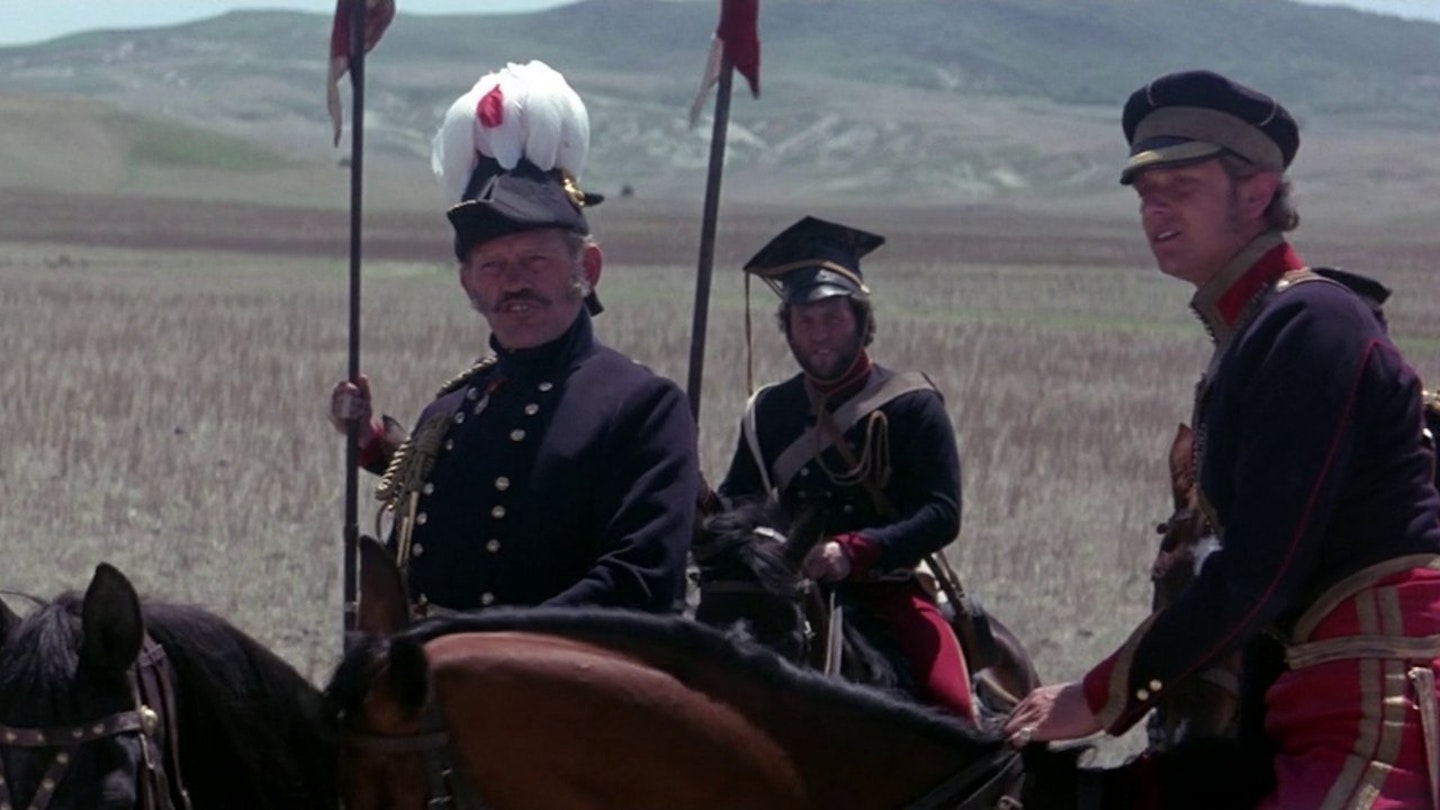A satirical take on the epic format made popular in the sixties, in that it bitterly concentrates on the mismanagement and upper-class hubris that led to the unnecessary slaughter of five regiments of British cavalrymen in a frontal attack on Russian canons. Tony Richardson, a caustic voice from the left of British cinema, lays the blame firmly at the huddle of inexperienced aristocrats who saw war more as an opportunity for glory than a matter of sound tactics, viewing enlisted men as fodder for their aspirations.
It’s so determined to take its vehement antiwar stance, that the narrative tends to lack a driving through line, it keeps ponderously circling the brusque conferences between Lords Cardigan, Raglan and Lucan (an ancestor of that absconded seventies murderer) played with brutish authority by Trevor Howard, John Gauged and an excellent Harry Andrews respectively.
If there is a hero of the piece it is David Hemmings’ young Captain Nolan, whose understanding and experience of the battlefield draws him to contend with the stupidity of his superiors. They, naturally, dismiss his calls to sense — why should they listen to an underling? And with history’s inevitable irony, Nolan was killed before the charge even began, and Richardson laps up the symbolism of a hero who is denied even a glorious martyrdom.
It’s a long, good-looking film, rich in the detail of the era, taking much of its running time charting the reasons, often dubious, for Britain’s presence on this baren outcrop in the Black Sea. War was a rite of passage, an opportunity for fame, directed by fools in big hats, unencumbered by self-doubt.
The final attack is breathlessly mounted, the thunder of shells bursting with horrid power overheard, a constant, thrumming sense of momentum toward death. Finally the camera lingers on a dead horse, a symbol of absolute waste. Heavy-handedness aside, Richardson makes a telling point.
